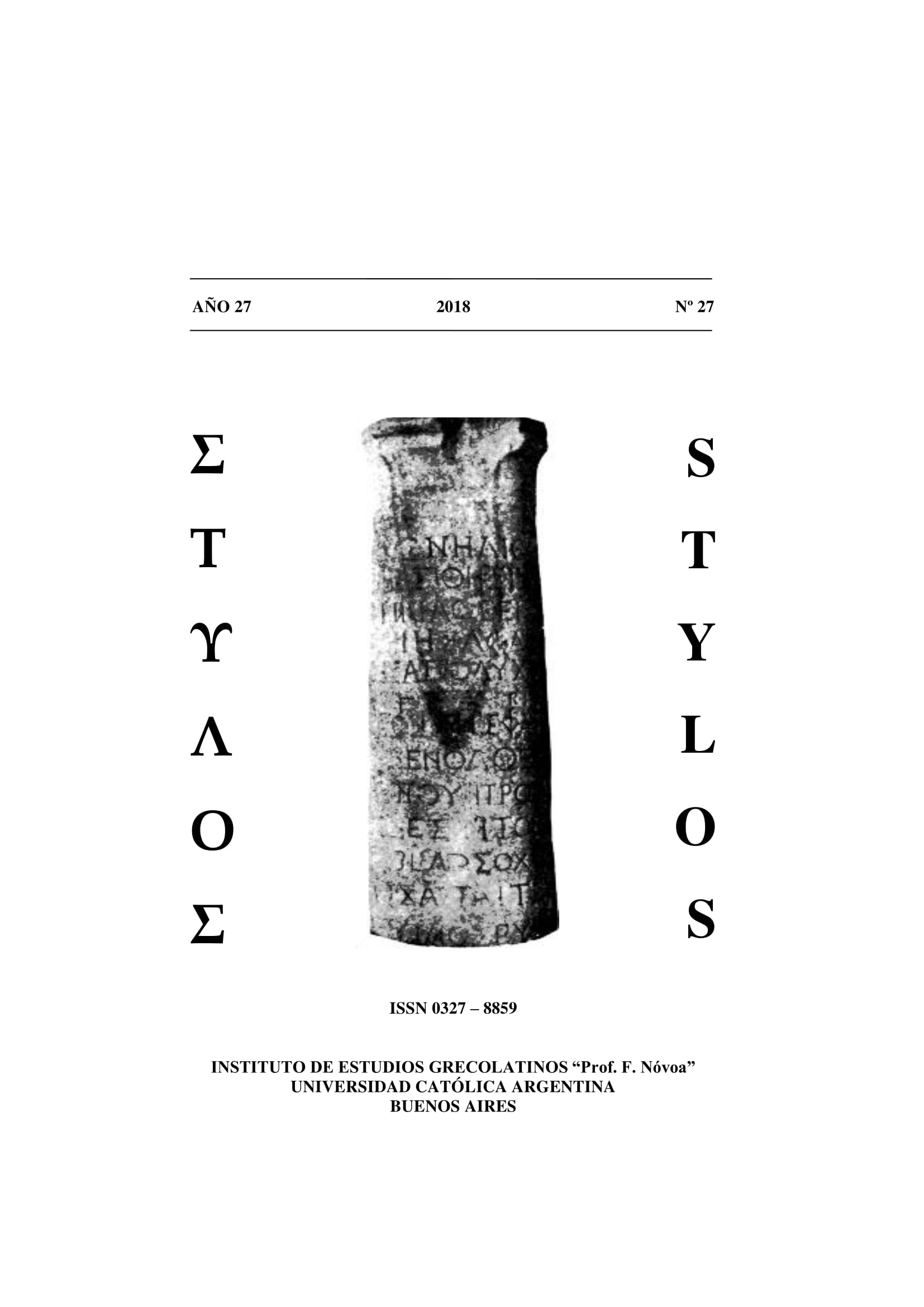LA TEMPORALIDAD DE LA NOVELA GRIEGA Y BIZANTINA APUNTES DE LECTURA
Keywords:
Greek novel, Xenophon of Ephesus, Bakhtin, Byzantine novel, Eumathios Makrembolites, progymnasmata.Abstract
M. Bakhtin postulated an abstract temporality for the Greek novel: time only elapses for differentiating stages (falling in love, separation, tests, etc.); it does not alter the setting or the characters. This perspective shares a crucial feature with the notion that the Byzantine novel (12th c.) is a combination of progymnasmata; indeed, in neither type of novel is there an organic temporality which unifies the parts of the whole. Are we in both cases facing a stating conception of the novel or, on the contrary, are the parts understood as frames in a movie? This contribution aims at answering that question, analysing the Ephesiaca by Xenophon of Ephesus (1st c. CE) and Hysmine and Hysminias by Eumathios Makrembolites (12th c.), in the hope of showing changes in compositive technique and, more particularly, the common and divergent points in the conception of temporality.Downloads
Downloads
Published
07/11/2019
How to Cite
Fernández, T. (2019). LA TEMPORALIDAD DE LA NOVELA GRIEGA Y BIZANTINA APUNTES DE LECTURA. Stylos, 27(27), 102–113. Retrieved from https://erevistas.uca.edu.ar/index.php/STY/article/view/2053
Issue
Section
Artículos
License






